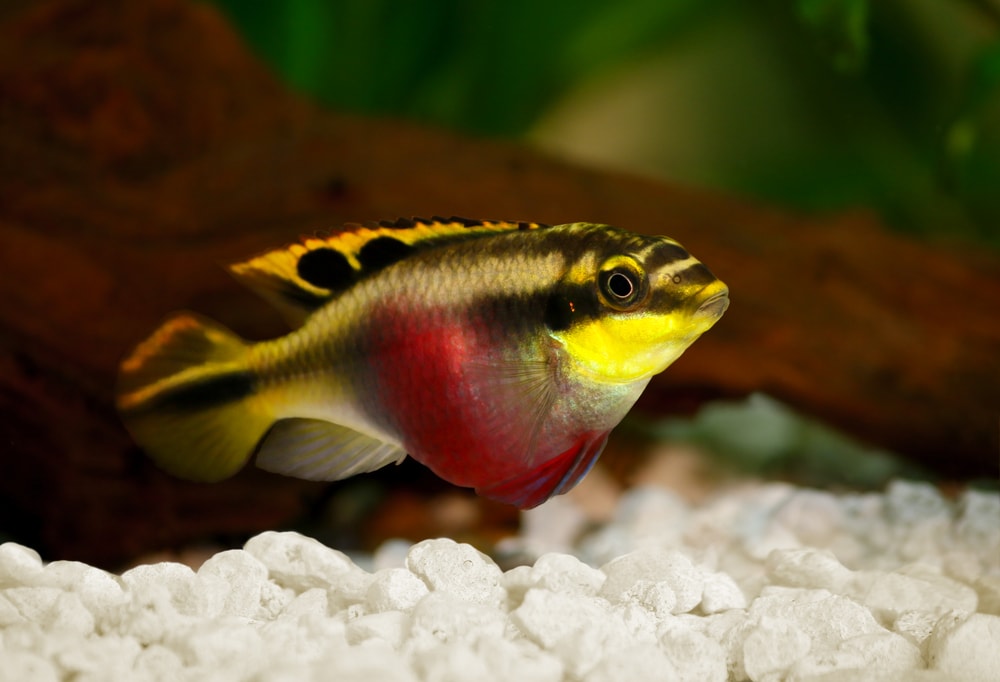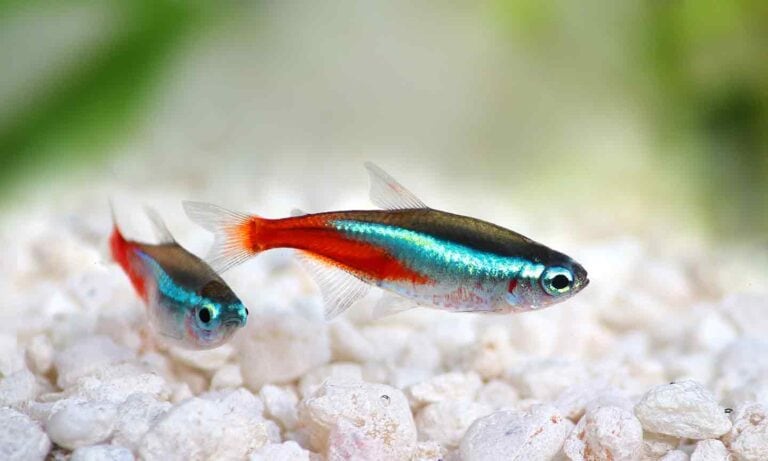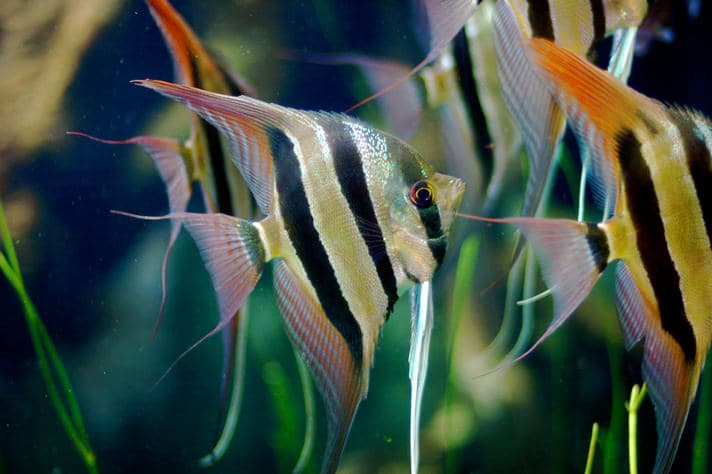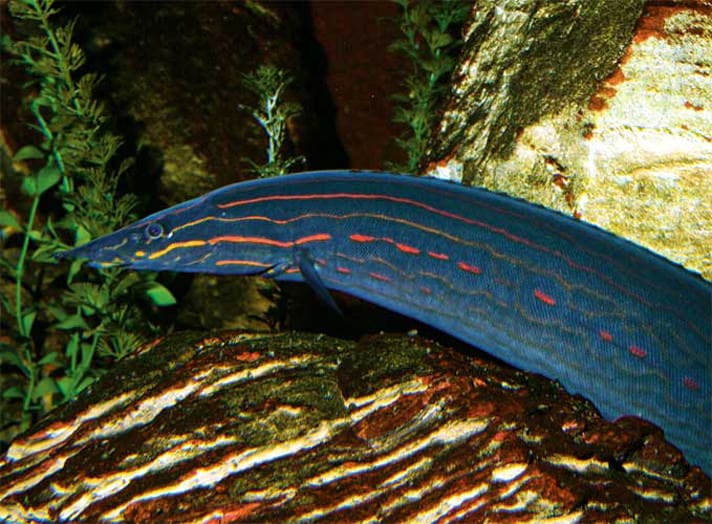Nesting Type: Pit-diggers
Nest Characteristics: A pit dug in the substrate (sand or gravel).
Fish That Create These Nests: Many cichlid fish species, such as the Lake Tanganyikan cichlid fish Xenotilapia ochrogenys; sunfish (Lepomis spp.)
Nesting Type: Cave-spawners
Nest Characteristics: Caves consist of holes in the rock, crevices, areas underneath overhands and empty spaces between rocks in a pile. Eggs are often laid on a cave’s roof.
Fish That Create These Nests: Many cichlids, such as kribensis (Pelvicachromis pulcher).
Nesting Type: Shell-dwellers
Nest Characteristics: Empty snail shells at least a couple of inches across and buried in sand substrate.
Fish That Create These Nests: Lamprologus (such as Lamprologus ocellatus and Lamprologus callipterus) and Neolamprologus (such as Neolamprologus brevis).
Nesting Type: Mound-builders
Nest Characteristics: Sand or gravel mounds used as mating spots (eggs are incubated in the female’s mouth).
Fish That Create These Nests: Callochromis cichlid fish and hornyhead chubs (Nicomis biguttatus).
Nesting Type: Bubblenest-builders
Nest Characteristics: Collection of bubbles at the water surface created from mucus produced by the male. Sometimes the nests are achored to floating plants, or have plants or twigs mixed in with the bubbles.
Fish That Create These Nests: Siamese fighting fish (Betta splendens); gouramis, such as the dwarf gourami (Colisa lalia); catfish, such as the hoplo catfish (Megalechis thoracata) and Callichthys callichthys.
Nesting Type: Burrowers
Nest Characteristics: Holes dug into mud banks or in the substrate beneath a rock or piece of driftwood.
Fish That Create These Nests: Plecos, such as Pterogoplichthys multiradiatus, and mudskippers
Nesting Type: Stick-built nests
Nest Characteristics: Bits of plants woven into round nests with an opening on one side. They are held together by a secretion from the male’s kidneys. Can also be a birdlike nest with bits of plants “glued” to the substrate.
Fish That Create These Nests: Sticklebacks, such as the brook stickleback (Culacea inconstans) and the threespine stickleback (Gasterosteus aculeatus).
By: Chewy Editorial
Featured Image: By Mirko Rosenau/Shutterstock
Share:









